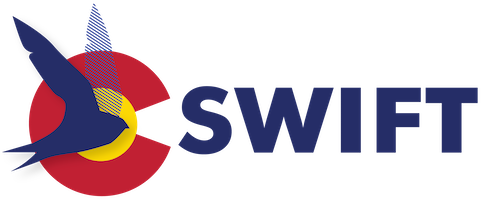Welcome to the SWIFT Knowledge Base
Prospector Policies & Best Practices
Loan Rules
- All non-media items are checked out for three weeks with one three week renewal for a maximum of 42 days.
- Media (videos, CDs and DVDs) can be checked out for one-week with no renewals.
Hold Shelf
- The length of time an item sits on your holdshelf should be at least seven 7 days and no more than 14 days.
Lost Items
- Prospector considers a book to be lost after no more than 55 days.
- No money is exchanged between libraries for lost items, but some Prospector libraries will accept a replacement copy in lieu of payment. A list of libraries that will accept a replacement copy is available on the Prospector web page at: https://www.coalliance.org/sites/default/files/ProspectorReplacementPolicyUpdated6212.pdf
- Each library will determine the price they will bill to their own patrons for lost Prospector items. Negotiations with patrons on the replacement of books or reduction in fees are determined by the borrowing library.
Recalls
- There is no way to recall an item in order to shorten the checkout period of an item in Prospector. If an item loaned through Prospector is needed for an immediate obligation, the owning library should contact the borrowing library and request that they contact the patron and ask for early return of the item.
Procedural
- If you need to contact another library with a Prospector concern, contact the person listed as the day-to-day contact on the Document Delivery committee list on the Prospector staff website: https://www.coalliance.org/document-delivery-committee
- If an item is returned from the borrowing library missing a component like a CD or DVD, contact the borrowing library’s Prospector representative (day-to-day) contact for follow-up.
- Barcode any requested item before it leaves your library
- To report problems or request assistance with Prospector or the RSB client, email swift-support@coloradovirtuallibrary.org. In your message, please share as much detail about the problem as possible, including:
- Sierra Web Username and Staff or Patron Card Barcode you were using
- Any Error Messages received
- Steps you were taking when you encountered the problem
- Do not print in-transit slips for returns (unless used for an in-house, local practice).
- If a book is received without a virtual record, you may check the item out to a patron manually.
- Before returning an item to the lending site, remove all paperwork such as paging slips, bookmarks, and book bands
Paging Slips & Packaging
- Fold the paging slip in half and insert text-out, face-up and just inside the front cover when lending—regardless of where the barcode is located. Do not return or keep paging slip for privacy reasons. If using a receipt as a paging slip, make sure it’s securely placed in the item.
- Fold and staple the courier slip and attached it to the outside of the book. Please don’t use the paging slip as a courier slip as important information may be lost if the slip is damaged in route. For examples, refer to Prospector & Courier Best Practices document on the Prospector website: https://www.coalliance.org/document-delivery-committee
- Paging slips should be printed at least once per day Monday through Friday except on holidays or other closures.
- Do not affix any date due slips or other sticky-type materials to books that have been borrowed. Bookbands, bookmarks, or other non-adhering type processing are recommended.
- Use ILL best practice for Rubberbanding: No more than 3 books or 4-6 inches should be rubberbanded in one stack and separate larger items from smaller ones.
Courier Issues
- If a book destined for a different library mistakenly comes to your site, go ahead and re- tag the book for the courier to deliver to the appropriate destination.
- Stolen and damaged books are handled like any other lost book. The owning library should work with CLIC if an item is damaged by their courier.
